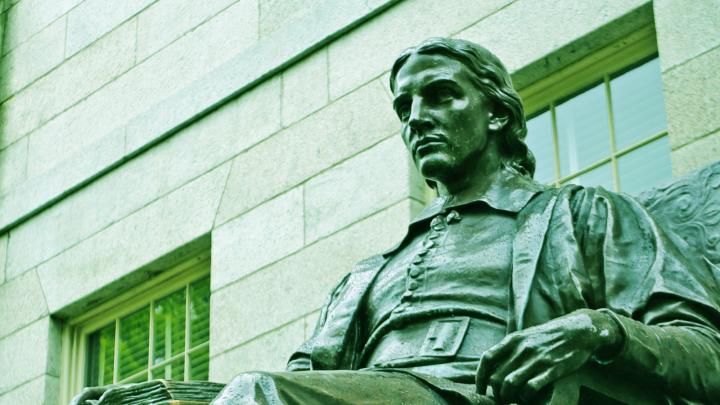Last October, in the wake of strong student support for divesting University investments in companies engaged in producing fossil fuels (part of a campaign to promote this idea nationwide), President Drew Faust announced to the community that Harvard would not take that step. She pointed instead to the “University’s distinctive way of serving society” through education and research, in pursuit of which it was appropriate to be “very wary of steps intended to instrumentalize our endowment.” She sketched “significant and growing” teaching and research on environmental and climate issues, a “strong institutional commitment to sustainability,” and steps to “strengthen and further develop our approach to sustainable investment.” Those priorities, as summarized then, were not accompanied by further details—and student and alumni interest in divestiture continued apace, at Harvard and elsewhere (see this Yale Daily News account for a report from New Haven).
In a letter to the community this afternoon, Faust filled in more of the picture.
Research. In fields spanning “climate science, engineering, law, public health, policy, design, and business,” Faust wrote, The Harvard Campaign has made energy and environment a priority, and has raised $120 million toward this end. (A $31-million gift to the Center for the Environment, within the Faculty of Arts and Sciences campaign, may be a part of this total, as reported here.) Details of that philanthropy were not provided, but the president’s message linked to a display of the numbers of courses offered, faculty working with the Center for the Environment on pertinent research, and certain programmatic highlights, such as climate-change research in the Amazon, Business School scholarship, policy investigations of fossil-fuel subsidies, and more. To “catalyze” research, focusing on the “transition to a sustainable energy system,” the president is adding a new arrow to the quiver of innovation grants like those associated with the Harvard iLab, with a $1-million Climate Change Solutions Fund, effective July 1; it is meant to encourage faculty and student innovations, and, Faust wrote, should anchor a fund that she hopes alumni will underwrite to the tune of $20 million. (Among recent Harvard Magazine features on climate-change research at the University, see “Time to Electrify,” “Buffering the Sun,” “Reefs at Risk”—with photographs by David Arnold ’71— “The Water Tamer,” “Greening China,” and “Fueling Our Future.”)
Sustainability. In 2008, the University established a goal of achieving a 30 percent reduction in greenhouse-gas emissions compared to the 2006 level, including emissions from new facilities (see the office of sustainability website here). Faust reported today that a task force reviewing progress toward that goal has recommended continuing to maximize on-campus reduction efforts, plus exploring offsets and other alternatives to bridge an expected gap in achieving the full 30 percent reduction. A sustainability committee of senior faculty members will be created to guide those actions.
Investment. Following the arrival at Harvard Management Company of Jameela Pedicini as vice president for sustainable investing, the University has now decided to become a signatory to the United Nations Principles for Responsible Investment, joining, as Faust wrote, “a network of international investors working to implement a set of voluntary principles that provide a framework for integrating environmental, social, and governmental factors into investment analysis and ownership practices aligned with investors’ fiduciary duties.” Harvard will also become a signatory to the nonprofit Carbon Disclosure Project climate-change program; it works with investors to seek from portfolio companies information on their greenhouse-gas emissions, energy use, and carbon-related business risks. (See Bloomberg’s report on the recent Exxon Mobil Corporation response to investor requests for such disclosure.) “Both these significant steps,” Faust wrote, “underscore our growing efforts to consider environmental, social and governance issues among the many factors that inform our investment decision-making, with a paramount concern for how the endowment can best support the academic aspirations and educational opportunities that define our distinctive purposes as a university.”
Read the president’s message here.









